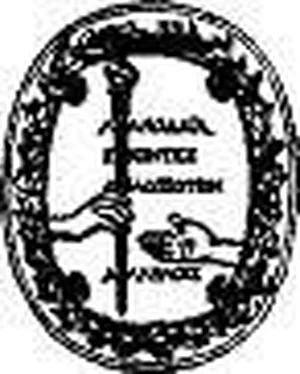Herbert Wells - Tales of Space and Time
Здесь есть возможность читать онлайн «Herbert Wells - Tales of Space and Time» весь текст электронной книги совершенно бесплатно (целиком полную версию без сокращений). В некоторых случаях можно слушать аудио, скачать через торрент в формате fb2 и присутствует краткое содержание. Жанр: Фантастика и фэнтези, на английском языке. Описание произведения, (предисловие) а так же отзывы посетителей доступны на портале библиотеки ЛибКат.
- Название:Tales of Space and Time
- Автор:
- Жанр:
- Год:неизвестен
- ISBN:нет данных
- Рейтинг книги:4 / 5. Голосов: 1
-
Избранное:Добавить в избранное
- Отзывы:
-
Ваша оценка:
- 80
- 1
- 2
- 3
- 4
- 5
Tales of Space and Time: краткое содержание, описание и аннотация
Предлагаем к чтению аннотацию, описание, краткое содержание или предисловие (зависит от того, что написал сам автор книги «Tales of Space and Time»). Если вы не нашли необходимую информацию о книге — напишите в комментариях, мы постараемся отыскать её.
Tales of Space and Time — читать онлайн бесплатно полную книгу (весь текст) целиком
Ниже представлен текст книги, разбитый по страницам. Система сохранения места последней прочитанной страницы, позволяет с удобством читать онлайн бесплатно книгу «Tales of Space and Time», без необходимости каждый раз заново искать на чём Вы остановились. Поставьте закладку, и сможете в любой момент перейти на страницу, на которой закончили чтение.
Интервал:
Закладка:
"We need not go there— yet ?" said Elizabeth.
"No—not till we are hungry," said Denton.
They said no more.
Elizabeth's eyes sought a resting-place and found none. To the right roared the eastward ways, to the left the ways in the opposite direction, swarming with people. Backwards and forwards along a cable overhead rushed a string of gesticulating men, dressed like clowns, each marked on back and chest with one gigantic letter, so that altogether they spelt out:
"Purkinje's Digestive Pills."
An anæmic little woman in horrible coarse blue canvas pointed a little girl to one of this string of hurrying advertisements.
"Look!" said the anæmic woman: "there's yer father."
"Which?" said the little girl.
"'Im wiv his nose coloured red," said the anæmic woman.
The little girl began to cry, and Elizabeth could have cried too.
"Ain't 'e kickin' 'is legs!— just! " said the anæmic woman in blue, trying to make things bright again. "Looky— now! "
On the façade to the right a huge intensely bright disc of weird colour span incessantly, and letters of fire that came and went spelt out—
"Does this make you Giddy?"
Then a pause, followed by
"Take a Purkinje's Digestive Pill."
A vast and desolating braying began. "If you love Swagger Literature, put your telephone on to Bruggles, the Greatest Author of all Time. The Greatest Thinker of all Time. Teaches you Morals up to your Scalp! The very image of Socrates, except the back of his head, which is like Shakspeare. He has six toes, dresses in red, and never cleans his teeth. Hear Him!"
Denton's voice became audible in a gap in the uproar. "I never ought to have married you," he was saying. "I have wasted your money, ruined you, brought you to misery. I am a scoundrel.... Oh, this accursed world!"
She tried to speak, and for some moments could not. She grasped his hand. "No," she said at last.
A half-formed desire suddenly became determination. She stood up. "Will you come?"
He rose also. "We need not go there yet."
"Not that. But I want you to come to the flying stages—where we met. You know? The little seat."
He hesitated. " Can you?" he said, doubtfully.
"Must," she answered.
He hesitated still for a moment, then moved to obey her will.
And so it was they spent their last half-day of freedom out under the open air in the little seat under the flying stages where they had been wont to meet five short years ago. There she told him, what she could not tell him in the tumultuous public ways, that she did not repent even now of their marriage—that whatever discomfort and misery life still had for them, she was content with the things that had been. The weather was kind to them, the seat was sunlit and warm, and overhead the shining aëroplanes went and came.
At last towards sunsetting their time was at an end, and they made their vows to one another and clasped hands, and then rose up and went back into the ways of the city, a shabby-looking, heavy-hearted pair, tired and hungry. Soon they came to one of the pale blue signs that marked a Labour Company Bureau. For a space they stood in the middle way regarding this and at last descended, and entered the waiting-room.
The Labour Company had originally been a charitable organisation; its aim was to supply food, shelter, and work to all comers. This it was bound to do by the conditions of its incorporation, and it was also bound to supply food and shelter and medical attendance to all incapable of work who chose to demand its aid. In exchange these incapables paid labour notes, which they had to redeem upon recovery. They signed these labour notes with thumb-marks, which were photographed and indexed in such a way that this world-wide Labour Company could identify any one of its two or three hundred million clients at the cost of an hour's inquiry. The day's labour was defined as two spells in a treadmill used in generating electrical force, or its equivalent, and its due performance could be enforced by law. In practice the Labour Company found it advisable to add to its statutory obligations of food and shelter a few pence a day as an inducement to effort; and its enterprise had not only abolished pauperisation altogether, but supplied practically all but the very highest and most responsible labour throughout the world. Nearly a third of the population of the world were its serfs and debtors from the cradle to the grave.
In this practical, unsentimental way the problem of the unemployed had been most satisfactorily met and overcome. No one starved in the public ways, and no rags, no costume less sanitary and sufficient than the Labour Company's hygienic but inelegant blue canvas, pained the eye throughout the whole world. It was the constant theme of the phonographic newspapers how much the world had progressed since nineteenth-century days, when the bodies of those killed by the vehicular traffic or dead of starvation, were, they alleged, a common feature in all the busier streets.
Denton and Elizabeth sat apart in the waiting-room until their turn came. Most of the others collected there seemed limp and taciturn, but three or four young people gaudily dressed made up for the quietude of their companions. They were life clients of the Company, born in the Company's creche and destined to die in its hospital, and they had been out for a spree with some shillings or so of extra pay. They talked vociferously in a later development of the Cockney dialect, manifestly very proud of themselves.
Elizabeth's eyes went from these to the less assertive figures. One seemed exceptionally pitiful to her. It was a woman of perhaps forty-five, with gold-stained hair and a painted face, down which abundant tears had trickled; she had a pinched nose, hungry eyes, lean hands and shoulders, and her dusty worn-out finery told the story of her life. Another was a grey-bearded old man in the costume of a bishop of one of the high episcopal sects—for religion was now also a business, and had its ups and downs. And beside him a sickly, dissipated-looking boy of perhaps two-and-twenty glared at Fate.
Presently Elizabeth and then Denton interviewed the manageress—for the Company preferred women in this capacity—and found she possessed an energetic face, a contemptuous manner, and a particularly unpleasant voice. They were given various checks, including one to certify that they need not have their heads cropped; and when they had given their thumb-marks, learnt the number corresponding thereunto, and exchanged their shabby middle-class clothes for duly numbered blue canvas suits, they repaired to the huge plain dining-room for their first meal under these new conditions. Afterwards they were to return to her for instructions about their work.
When they had made the exchange of their clothing Elizabeth did not seem able to look at Denton at first; but he looked at her, and saw with astonishment that even in blue canvas she was still beautiful. And then their soup and bread came sliding on its little rail down the long table towards them and stopped with a jerk, and he forgot the matter. For they had had no proper meal for three days.
After they had dined they rested for a time. Neither talked—there was nothing to say; and presently they got up and went back to the manageress to learn what they had to do.
The manageress referred to a tablet. "Y'r rooms won't be here; it'll be in the Highbury Ward, Ninety-seventh Way, number two thousand and seventeen. Better make a note of it on y'r card. You , nought nought nought, type seven, sixty-four, b.c.d., gamma forty-one, female; you 'ave to go to the Metal-beating Company and try that for a day—fourpence bonus if ye're satisfactory; and you , nought seven one, type four, seven hundred and nine, g.f.b., pi five and ninety, male; you 'ave to go to the Photographic Company on Eighty-first Way, and learn something or other— I don't know—thrippence. 'Ere's y'r cards. That's all. Next! What? Didn't catch it all? Lor! So suppose I must go over it all again. Why don't you listen? Keerless, unprovident people! One'd think these things didn't matter."
Читать дальшеИнтервал:
Закладка:
Похожие книги на «Tales of Space and Time»
Представляем Вашему вниманию похожие книги на «Tales of Space and Time» списком для выбора. Мы отобрали схожую по названию и смыслу литературу в надежде предоставить читателям больше вариантов отыскать новые, интересные, ещё непрочитанные произведения.
Обсуждение, отзывы о книге «Tales of Space and Time» и просто собственные мнения читателей. Оставьте ваши комментарии, напишите, что Вы думаете о произведении, его смысле или главных героях. Укажите что конкретно понравилось, а что нет, и почему Вы так считаете.





